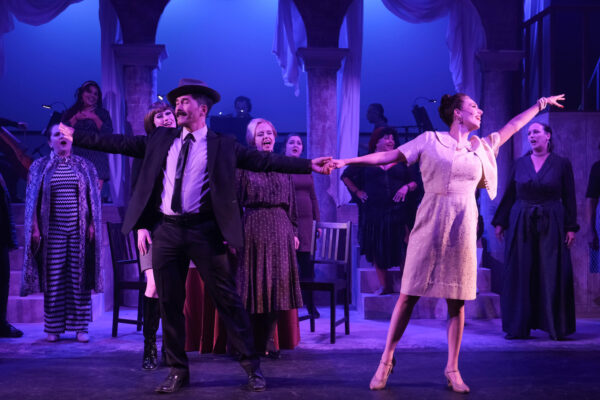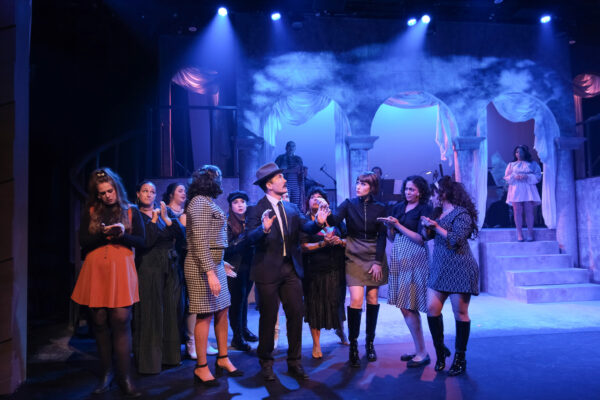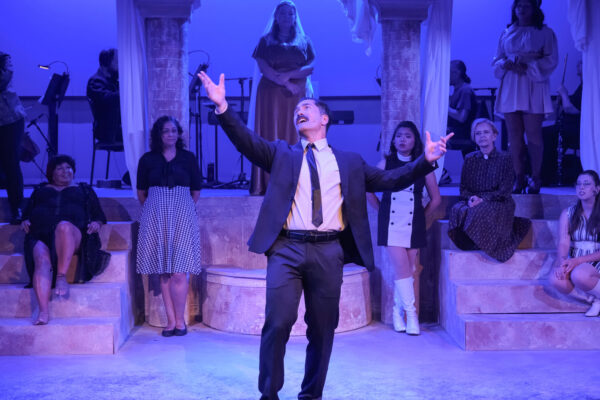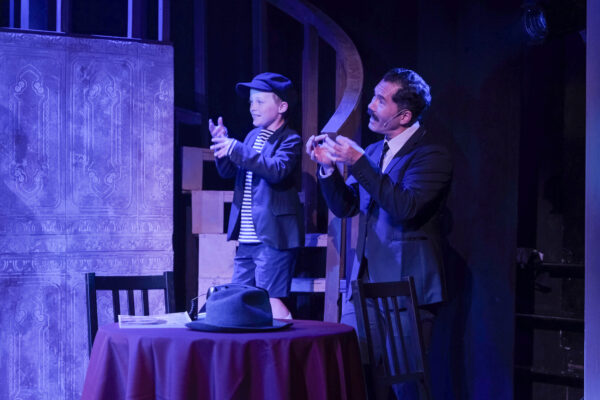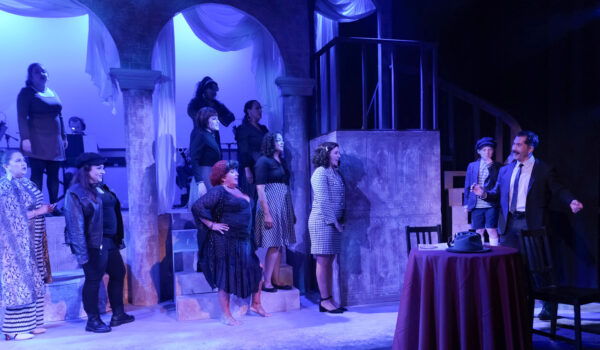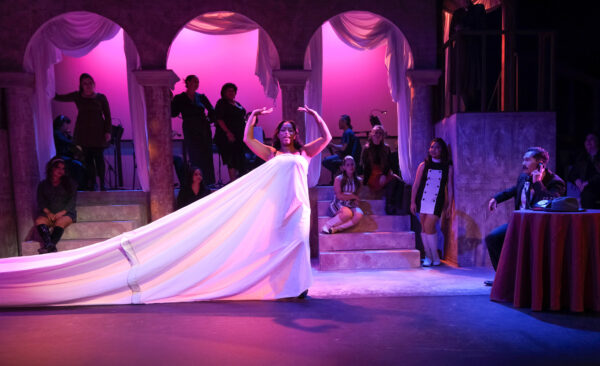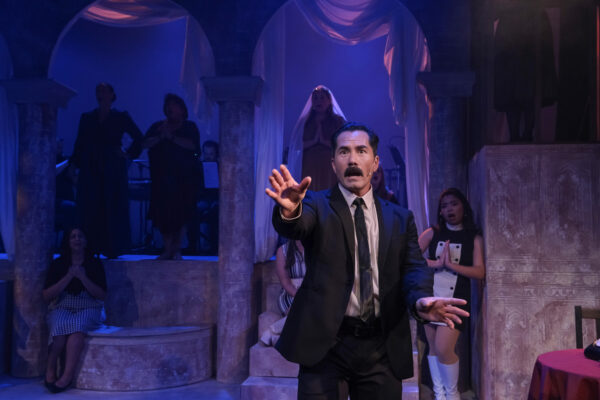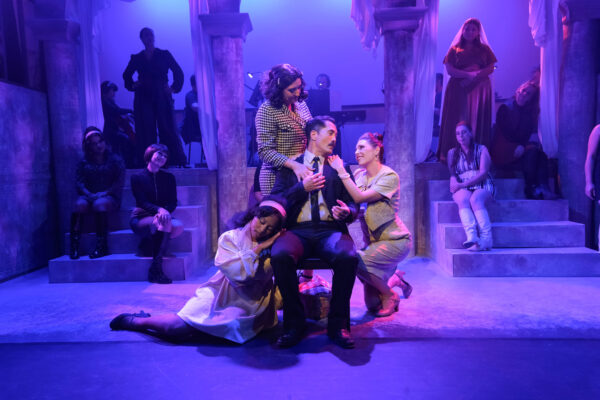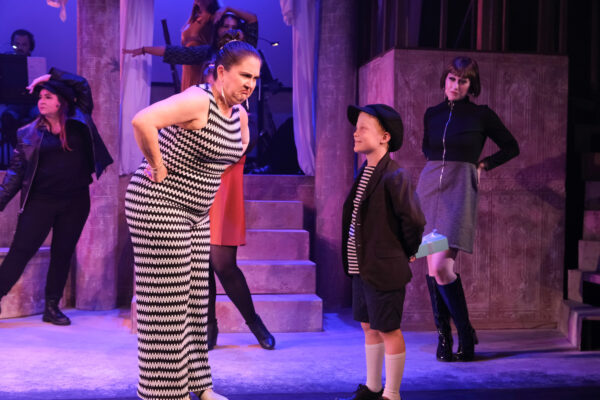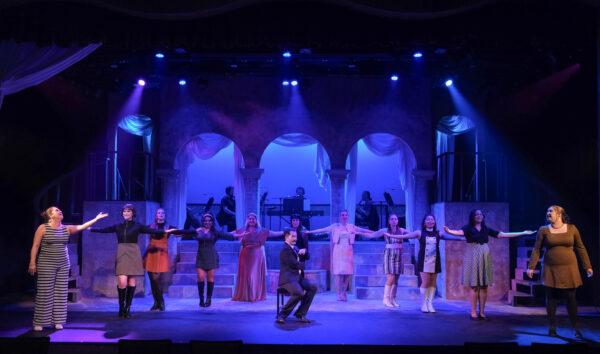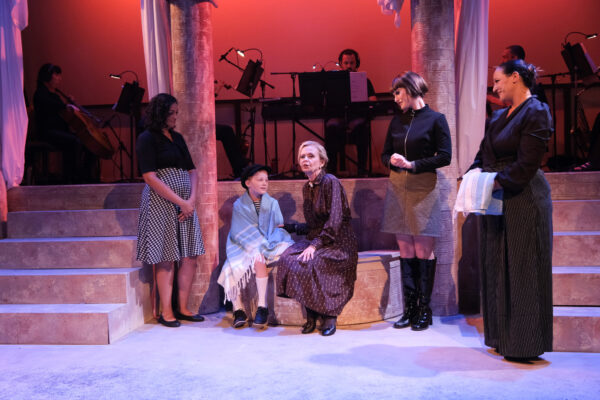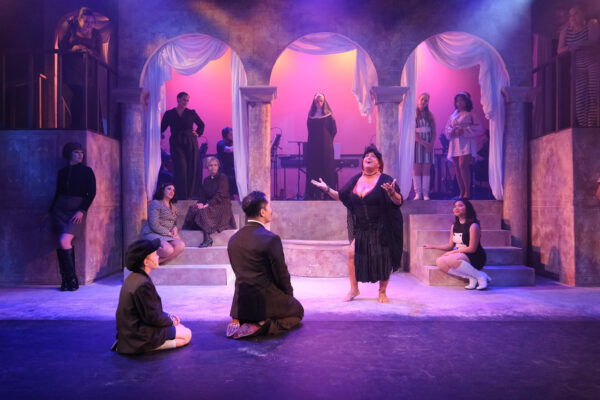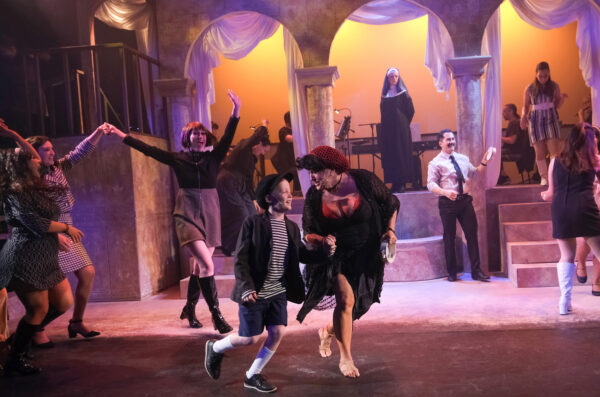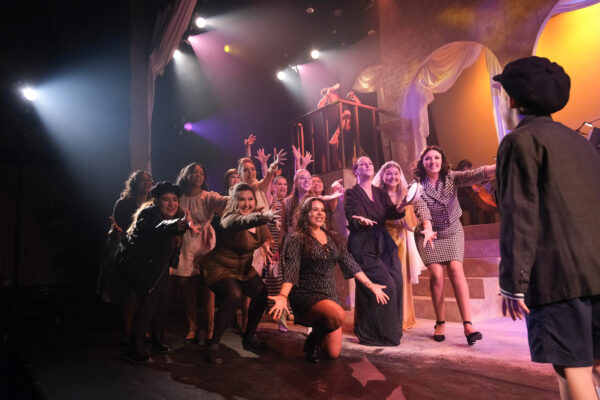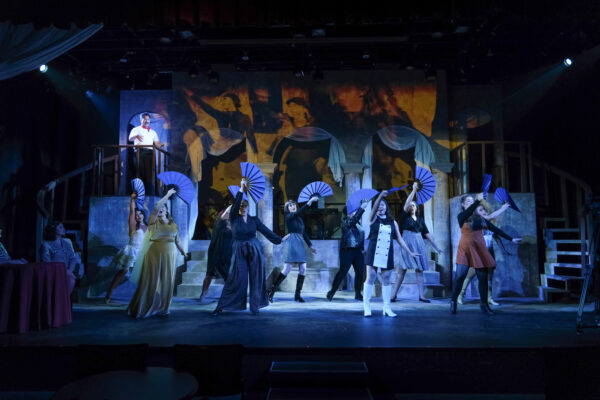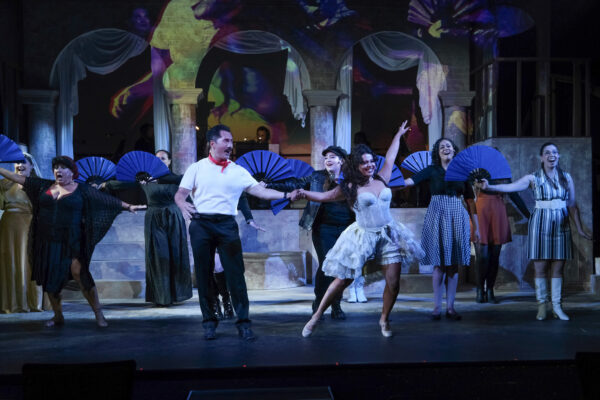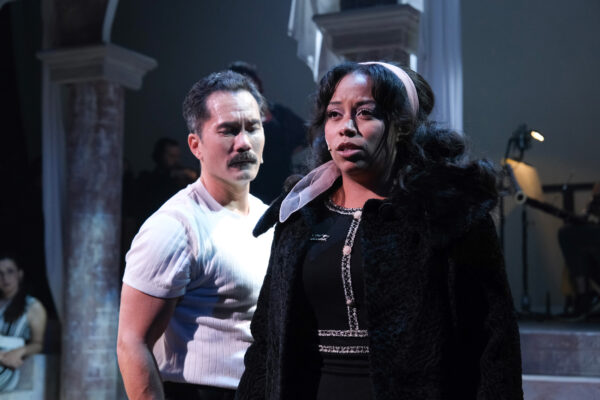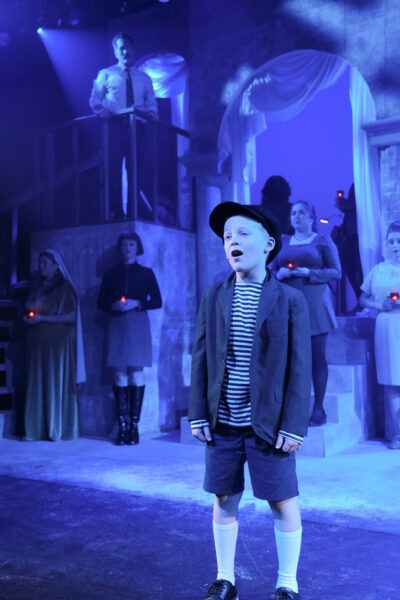IN THIS CASE, NINE IS A PERFECT SCORE
In Nine, the musical adaptation of Federico Fellini’s 1963 film 8 ½ now playing at Coronado Playhouse, Guido Contini (William Henry Schneider), an internationally famous film director of the 1960s, is turning forty and is at an impasse in several ways. After three critically and financially successful films, his last few have been flops. Yet he has convinced film producer Liliane La Fleur (Wendy Waddell) to back his amazing new script – which he is yet to have an idea for, let alone a script, with shooting starting in under a week. At the same time that he is tormented by his lack of a muse, his wife Luisa (Brittney Tiger) feels left out of his life, claiming they never talk and even when she does, he doesn’t listen. She isn’t wrong; all Guido thinks about when they are talking is primarily his romantic and business affairs with other women.
In a last ditch attempt to keep her from leaving him, he offers to take her to a high-end Venetian resort spa where they can try to rekindle the romance. She agrees, but not only does the press track him down there, but so does La Fleur, who tells him she’s coming and can’t wait to see the script, which apparently takes place in Venice since he’s there. His mistress Carla (Dacara Seward) keep calling, the lead actress from his earlier films whom he most wants back (Sara Frondoni) isn’t sure it’s wise to re-couple, and other women keep pulling him in multiple directions. The big question is whether Guido’s charms will help him pull off a Ferris Bueller-like moment where everything will come together or if his juggling act will all come crashing down.
The score writer Maury Yeston does not give Schneider and the rest of the cast an easy task; the music of Nine, while quite intriguing, is far from simple, with many discordant moments, rapid fire delivery, big ranges of notes in the same stanza, and more. To his credit, Schneider has a strong voice that a community theater like Coronado Playhouse was fortunate to find. He handles the role musically while being involved in virtually every scene.
But Guido is the only adult man opposite sixteen women, most of whom are supposed to be entranced by him. We are to believe these women will all make foolish choices over him because of his charms. That’s no small task; that kind of charisma has to be in your bones. Where the show falls short is that it takes a Raul Julia (1982 Broadway run) or an Antonio Banderas (2003 Broadway revival) to have us buy the deep charisma of this man, who has all of these women going crazy for him. Schneider is affable enough and certainly handsome but whether it is Schneider’s style or direction from Blake McCarty, the performance focuses so much on Guido’s confusion and struggles that we rarely see the magnetism that had all these women going gaga for him. The viewers need to fall under Guido’s spell, too. Since the base storyline of Arthur Kopit‘s book isn’t all that fascinating, it could seduce us if that magic were pumped up a notch, especially in Act I.
But don’t get me wrong. In no way does this huge sumptuous production falter. On Joe Kau and Jacob Sampson‘s multi-tiered set, McCarty does expert work in conjunction with choreographer Chelsea Zeffiro to visually delight with a ginormous amount of movement on a frequently-full stage of 20 performers (credit to stage managers Shellina Hefner and Clara Wilks). Tammy Molenaar on costumes clearly relishes delving into the ’60s theme. McCarty’s projection design onto a back wall in Act II does a terrific job of creating an older film feeling. We see what is coming through Guido’s camera − projected in a slightly choppy, sepia-toned version − giving us a peek at what’s going into the film. It’s very effective. Also outstanding under Music Director Richard Dueñez Morrison‘s tight leadership is a seven-piece band upstage featuring cello, bassoon, clarinet, violin, saxophone, piccolo, trumpet, and more to satisfy Yeston’s demanding and worthy score.
The singing performance of the night goes to Sara Frondoni, who effortlessly moves back and forth between a folk voice like Judy Collins into a sweetly controlled operatic style in “A Man Like You / Unusual Way”; the song ends with another character immediately speaking, but that actress had to stop mid-sentence because the audience wasn’t going to let Frondoni leave the stage without a huge acknowledgment. We also get a joyfully triumphant “Ti Voglio Bene / Be Italian” from Ria Carey as Saraghina, a pivotal influence on Guido when he was nine. Also strong (and good as always for some comic moments) is Wendy Waddell as La Fleur, the one woman who, right from the offset, may find him appealing, but isn’t getting snowed.
One of the things that makes live theater, compared to film, so exciting is that anything can go wrong: two occurred today. During one dance, about ten women snap open a fan. One dancer’s fan flew out of her hand during the snap and hit the ground hard. To our delight, her face never once acknowledged the moment as she continued all the fanning choreography flawlessly. Then, during one transitional moment in the dance, she improvised a pirouette, swooping one arm down to grab the fan, seamlessly rejoining the troupe. It was priceless.
The other interesting moment was when all of the side curtains in the theater suddenly started going up, letting sunlight in, as if to illuminate the audience. An interesting choice by McCarty? Nope, some idiot critic (!) in the very last row leaned against a wall switch. The lighting director ran over, edged him (!) forward, and reversed the curtain button. Mea culpa, Coronado Playhouse.
photos by Ken Jacques
Nine
produced by Desha Crownover, Joe Kao, and Elissa Russell
Coronado Playhouse
1835 Strand Way in Coronado (San Diego)
Thurs and Fri at 8, Sat at 2 & 8; Sun at 2
2 hours with one 15-minute intermission
ends on July 14, 2024
for tickets, call (619) 435-4856 or visit Coronado Playhouse

